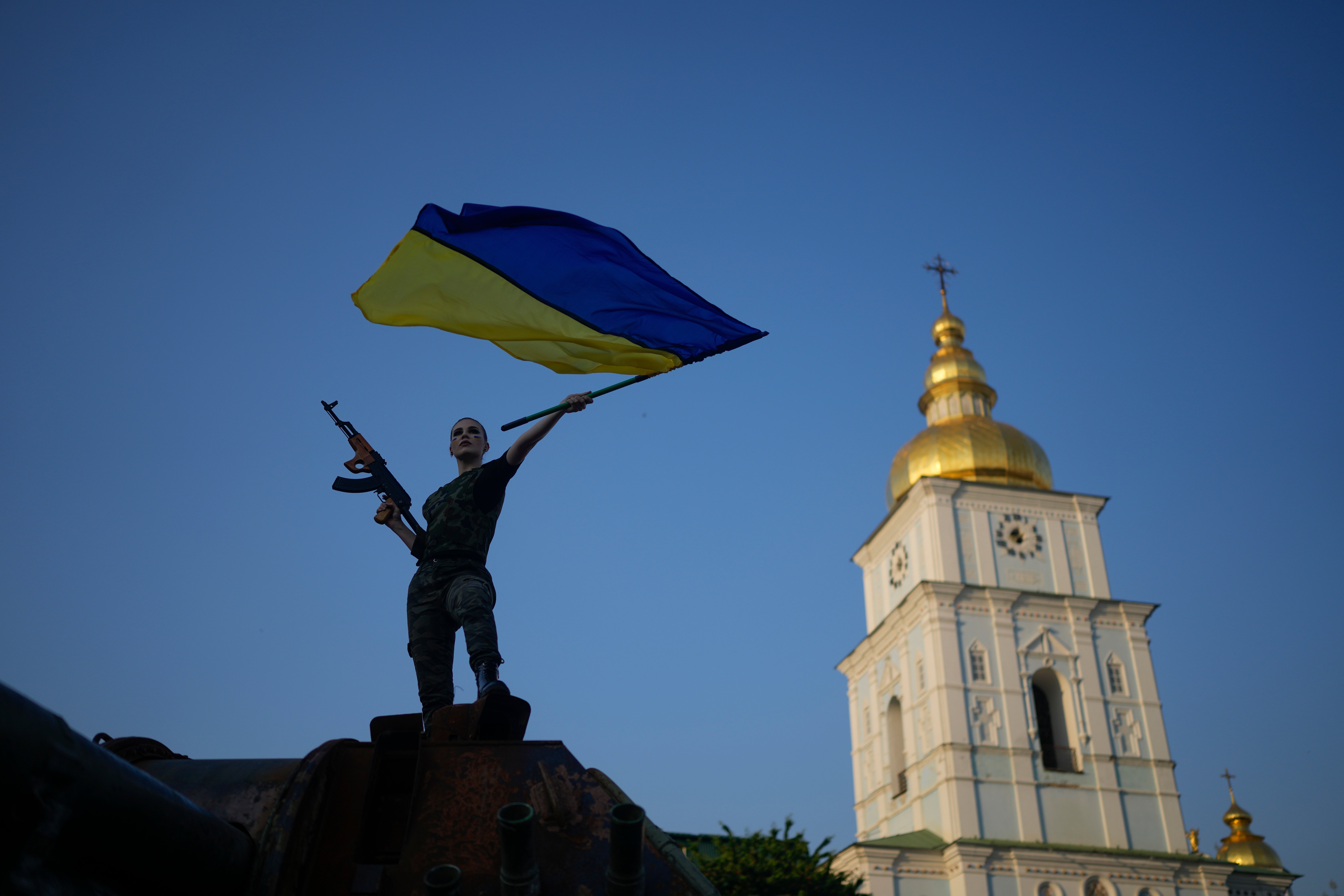What are the steps Ukraine has to take to join the EU?
The European Commission recommending membership candidate status is just the first step on a long journey, writes Chris Stevenson


We all know that Ukrainians are ready to die for the European perspective,” the president of the European Commission, Ursula von der Leyen, said in announcing the news that the commission has recommended Ukraine for EU candidate status. “We want them to live with us the European dream.”
Ukraine’s president, Volodymyr Zelensky, said the development was a “historic decision”. Moldova and Georgia also submitted applications in the wake of Russia’s invasion of Ukraine, with Moldova also being granted candidate status. Georgia will have to wait a while longer.
The commission did not recommend imposing any conditions to be met before the formal granting of candidate status to Ukraine or to Moldova, so the decision now passes to the 27 heads of state and government, who will discuss the matter at a summit next week. While nations have been supportive of Ukraine, unanimous agreement is needed for the commission’s recommendation to be taken up. Portugal and the Netherlands are among the member states who have expressed some tentative misgivings about the granting of candidate status, given the length of the process and the potential that it could give rise to unrealistic expectations in Kyiv.
If the 27 nations all agree, which in itself could take plenty of discussion, the process would then require the formal opening of accession talks. The European Commission would have judged the application of Ukraine in relation to the so-called Copenhagen criteria. These include the stability of institutions guaranteeing democracy, the rule of law and human rights; the need for a functioning free-market economy; and the capacity to take on the obligations of membership – but there will be benchmarks for Ukraine to meet before accession talks can even begin. Negotiations would then take place on a subject-by-subject basis, and could take years.
“It is a dynamic process. I really insist on that,” said Ms Von der Leyen during the candidate-status announcement. “So, it is not a rigid process that has defined timelines or steps that once done can never be undone.”
Turkey, for example, was declared eligible to join the EU in 1999, and accession talks began in 2005, but the process has slowed to essentially a standstill because of EU concerns about the erosion of the rule of law and human rights in the country in recent years. Croatia is the most recent country to join the EU, in 2013 – it took nine years to become a member after being granted candidate status.
The war in Ukraine is obviously significant in relation to this. Talks would not be able to begin until the war was over, and even then it could take years – and lots of money – to ensure that the country’s institutions meet the benchmarks required. There will be plenty to rebuild.
President Zelensky is not wrong that it is a significant moment. But this is a first step in a long journey that won’t necessarily be straightforward.



Join our commenting forum
Join thought-provoking conversations, follow other Independent readers and see their replies
Comments